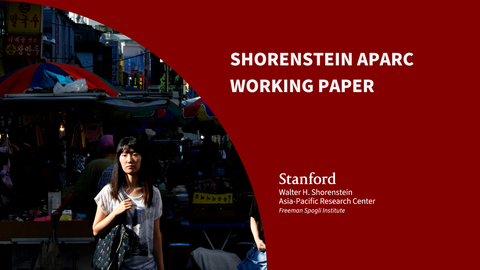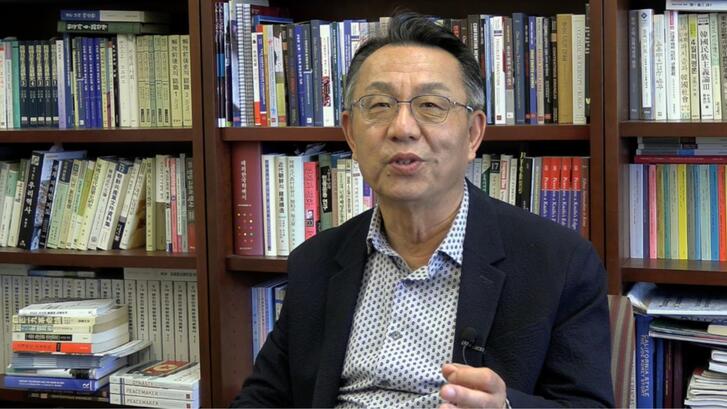Just as South Koreans expressed their gratitude to Americans who fought for their human rights, I have no doubt that the North Korean people feel the same way toward South Korea and the international community’s efforts to promote their human rights, even if they cannot—at present—write letters to the outside world. The late Reverend Yoon Hyun, who founded the Citizens’ Alliance for North Korean Human Rights in 1996 after spending decades fighting for human rights and democracy in South Korea, said he was driven by a haunting question. “What will we say when, after reunification, 200,000 political prisoners and their families ask us: what did you do as we were dying?”[28]
As North Korea will likely continue its provocative missile launches, most attention will be focused on security issues. Nevertheless, the Yoon administration must persevere in its efforts to improve the human rights of the North Korean people, and the Democratic Party of Korea should not repeat its past mistakes by politicizing or neglecting the issue. North Korean human rights is more than just a political problem or a national security objective. The citizens of the Republic of Korea have a historic responsibility and a collective moral obligation to address the suffering of their brethren in the North.
[1] Tom Lantos Human Rights Commission, “Civil and Political Rights in the Republic of Korea: Implications for Human Rights on the Peninsula,” April 15, 2021, https://humanrightscommission.house.gov/events/hearings/civil-and-political-rights-republic-korea-implications-human-rights-peninsula-0
[2] Rep. Christopher H. Smith, “Opening Remarks,” April 15, 2021, https://humanrightscommission.house.gov/sites/humanrightscommission.house.gov/files/documents/Opening%20Remarks_SKorea_CHS_Final.pdf.
[3] Gi-Wook Shin, “South Korea’s Democratic Decay,” Journal of Democracy 31, no. 3 (2020): 100–14, https://www.journalofdemocracy.org/articles/south-koreas-democratic-decay/.
[4] This comment was made in relation to the so-called anti-leaflet law that was passed by the ruling Democratic Party of Korea during the Moon administration. One of the primary justifications for the law given by its proponents was that launching leaflet balloons across the border could prompt an armed response from North Korea, thereby endangering the security of South Koreans living near the border. See Rep. James P. McGovern, “Opening Remarks,” https://humanrightscommission.house.gov/sites/humanrightscommission.house.gov/files/documents/Opening%20Remarks_SKorea_JPM_Final.pdf.
[5] Yacob A. Zereyesus et al., International Food Security Assessment, 2022-32 (Washington, D.C.: U.S. Department of Agriculture Economic Research Service, 2022), 56, https://www.ers.usda.gov/publications/pub-details/?pubid=104707.
[6] This office, established pursuant to a recommendation by the UN Commission of Inquiry on North Korean human rights, monitors human rights in North Korea. For further details on Heenan’s remarks, see “U.N. Agency Head Says N. Korea’s Human Rights Situation in ‘Black Box’,” Yonhap News, December 6, 2022, https://en.yna.co.kr/view/AEN20221206008700325.
[7] Freedom in the World 2022: The Global Expansion of Authoritarian Rule (Washington, D.C.: Freedom House, 2022), https://freedomhouse.org/report/freedom-world.
[8] Park Soo-Yoon, “North Korea Spent 46 Days’ Worth of Food on Firing Missiles, With Reports of Starvation Deaths in Hamgyong Province” [in Korean], Yonhap News, December 19, 2022, https://www.yna.co.kr/view/AKR20221219095700504.
[9] For the UN reports, see “Special Rapporteur on the Situation of Human Rights in the Democratic People's Republic of Korea,” UN Human Rights Office of the High Commissioner, https://www.ohchr.org/en/special-procedures/sr-dprk; for country reports, see “2021 Country Reports on Human Rights Practices: North Korea,” U.S. Department of State, https://www.state.gov/reports/2021-country-reports-on-human-rights-practices/north-korea/.
[10] United Nations Human Rights Council, Report of the Commission of Inquiry on Human Rights in the Democratic People’s Republic of Korea, UN Doc. A/HRC/25/63 (2014), para. 80, https://www.ohchr.org/en/hr-bodies/hrc/co-idprk/commission-inquiryon-h-rin-dprk
[11] Victor Cha, “The Error of Zero-Sum Thinking about Human Rights and U.S. Denuclearization Policy,” in The North Korean Conundrum: Balancing Human Rights and Nuclear Security, eds. Robert R. King and Gi-Wook Shin (Stanford: Walter H. Shorenstein Asia-Pacific Research Center, 2022), 157–78.
[12] Soo-Kyung Kim, “An Interview with Former Special Envoy Robert King” [in Korean], Sindonga, December 30, 2022, https://shindonga.donga.com/3/home/13/3842527/1.
[13] “Ambassador Jang Il Hun on Human Rights in North Korea,” Council on Foreign Relations, October 20, 2014, https://www.cfr.org/event/ambassador-jang-il-hun-human-rights-north-korea.
[14] Robert R. King, “North Korean Human Rights in the 2018 and 2019 State of the Union Addresses—What a Difference a Year Makes,” Center for Strategic and International Studies, February 7, 2019, https://www.csis.org/analysis/north-korean-human-rights-2018-and-2019-state-union-addresses-what-difference-year-makes.
[15] Kim Joon-Young, “Ministry of Unification Issues Statement on Forcible Repatriation after Text Message is Caught on Camera” [in Korean], JoongAng Ilbo, November 8, 2019, https://www.joongang.co.kr/article/23627798.
[16] United Nations, “Universal Declaration of Human Rights,” https://www.un.org/en/about-us/universal-declaration-of-human-rights
[17] United Nations, “Universal Declaration of Human Rights.”
[18] Korea Law Information Center, “North Korean Human Rights Act,” https://www.law.go.kr/lsInfoP.do?lsiSeq=181623&viewCls=engLsInfoR#0000.
[19] The Democratic Party of Korea has persistently failed to appoint its allocated quota of five individuals to the foundation’s board of directors, and the Ministry of Unification has spent nearly $2 million on office rent and personnel costs to no avail. See Oh Soo-Jeong, “North Korean Human Rights Foundation Idle for Six Years, Nearly $2 million Spent on Rent Alone” [in Korean], NoCut News, October 6, 2022, https://www.nocutnews.co.kr/news/5828493.
[20] “U.S. to Continue Efforts to Free S. Koreans Detained by N. Korea: Washington Official,” Yonhap News, February 7, 2023, https://en.yna.co.kr/view/AEN20230207009400325.
[21] Government of the People’s Republic of North Korea, “Democratic People’s Republic of Korea
Voluntary National Review On the Implementation of the 2030 Agenda,” https://sustainabledevelopment.un.org/content/documents/282482021_VNR_Report_DPRK.pdf.
[22] Kim Namseok, “A Resurgence of Democracy? A Conversation with Francis Fukuyama on the Challenges of a Changing Global Order,” trans. Raymond Ha, Freeman Spogli Institute for International Studies, January 12, 2023, https://fsi.stanford.edu/news/resurgence-democracy.
[23] “S. Korea Seeks Formal Consultations with U.S., EU on NK Human Rights,” Yonhap News, January 15, 2023, https://en.yna.co.kr/view/AEN20230115001200325.
[24] Roberta Cohen, “Legal Grounds for Protection of North Korean Refugees,” Brookings Institution, September 13, 2010, https://www.brookings.edu/opinions/legal-grounds-for-protection-of-north-korean-refugees/.
[25] U.S. Department of State, 2022 Trafficking in Persons Report, https://www.state.gov/reports/2022-trafficking-in-persons-report/.
[26] This era is named after the Yusin Constitution, which went into force in 1972 and codified authoritarian rule under Park Chung-Hee. It marked some of the most oppressive years of dictatorial rule in South Korea.
[27] Sean King, “Germany’s Lessons for Korea,” in The North Korean Conundrum: Balancing Human Rights and Nuclear Security, eds. Robert R. King and Gi-Wook Shin (Stanford: Walter H. Shorenstein Asia-Pacific Research Center, 2022), 203.
[28] “About the Citizens' Alliance for North Korean Human Rights” [in Korean], Citizens’ Alliance for North Korean Human Rights, https://www.nkhr.or.kr/nkhr-소개/북한인권시민연합-소개/?ckattempt=1.



















